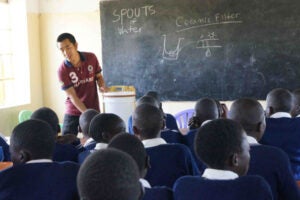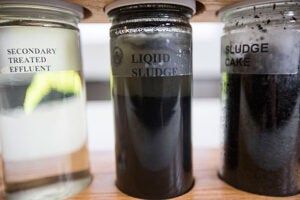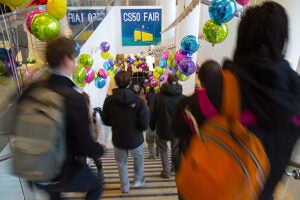Tag: School of Engineering and Applied Sciences
-
Nation & World
Have silicon switches met their match?
Silicon has few serious competitors as the material of choice in the electronics industry. Now, Harvard researchers have engineered a quantum material called a correlated oxide to perform comparably with the best silicon switches.
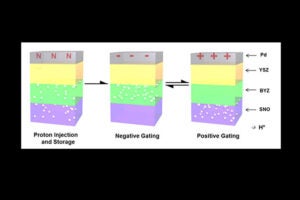
-
Nation & World
Cutting the cord on soft robots
Researchers at Harvard’s School of Engineering and Applied Sciences and the Wyss Institute for Biologically Inspired Engineering have developed the world’s first untethered soft robot — a quadruped that can stand up and walk away from its designers.
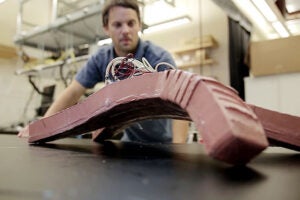
-
Nation & World
‘It was sort of a eureka moment’
Harvard engineers demonstrated a novel engineering process by creating a self-assembling robot that folds up from a flat sheet of composite material and then walks away. The Gazette spoke with engineering Professor Robert Wood about the project.
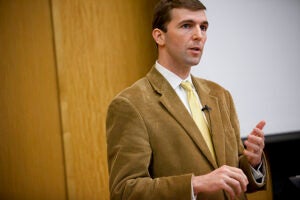
-
Nation & World
Robot folds up, walks away
A team of engineers used little more than paper and a classic children’s toy to build a robot that assembles itself into a complex shape in four minutes, and crawls away without human intervention.
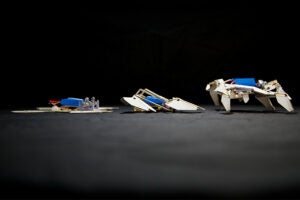
-
Nation & World
Energy research wins grant
Harvard chemist Cynthia Friend has been awarded a major center grant from the U.S. Department of Energy’s Basic Energy Sciences’ Energy Frontier Research Centers program, which is designed “to accelerate the scientific breakthroughs needed to build the 21st-century energy economy.”
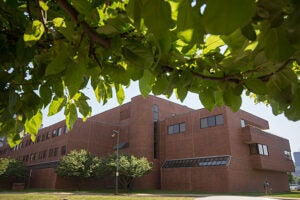
-
Nation & World
Now available on the Web? Smells
Harvard Professor David Edwards and a former engineering student, Rachel Field, added another sense to digital communications, sending a smell across the Atlantic, where a scent generator called an oPhone reproduced it.
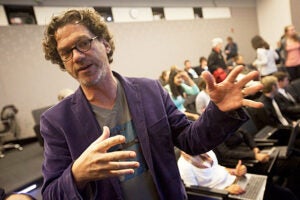
-
Nation & World
A malignant ‘switch’ in breast cancer
A team of researchers led by David J. Mooney, Robert P. Pinkas Family Professor of Bioengineering at the Harvard School of Engineering and Applied Sciences, has identified a possible mechanism by which normal cells turn malignant in mammary epithelial tissues, those frequently involved in breast cancer.
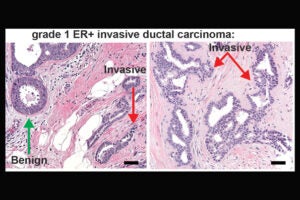
-
Nation & World
Eric Mazur wins Minerva Prize
The Minerva Academy on Tuesday named Eric Mazur the first winner of the Minerva Prize for Advancements in Higher Education.
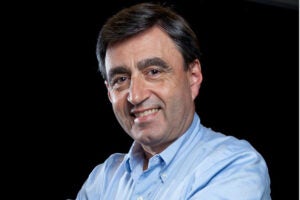
-
Nation & World
When engineering meets art
Music blared, LEDs blinked, and jaws dropped Tuesday at the SEAS Design and Project Fair, a celebration of creative problem-solving by students at the School of Engineering and Applied Sciences…
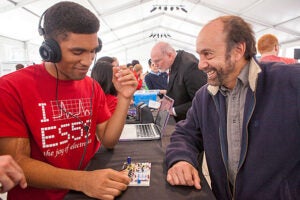
-
Nation & World
Advising on climate change
In addition to conducting research and teaching about climate, energy, and the environment, Harvard faculty members also serve as expert advisers to policymakers, putting their science to work to improve laws and regulations and to foster understanding between the worlds of government and academics.
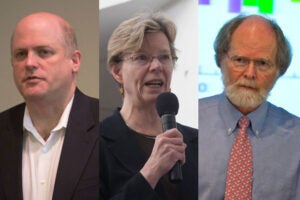
-
Nation & World
Science on a plate
Two Harvard College students deliver pizza (with some STEM education baked in) to Cambridge middle school kids.
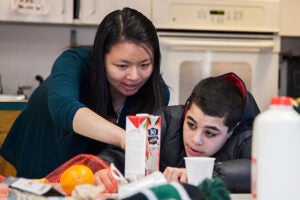
-
Nation & World
Quality control
A Harvard research team led by Kevin Kit Parker, a Harvard Stem Cell Institute principal faculty member, has identified a set of 64 crucial parameters by which to judge stem cell-derived cardiac myocytes, making it possible for scientists and pharmaceutical companies to quantitatively judge and compare the value of stem cells.
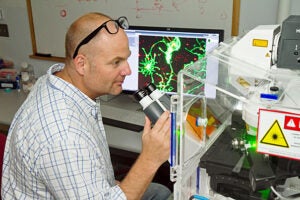
-
Nation & World
Grasping with the eyes
A symposium on data visualization brought together experts from campus and beyond to show how technology in the arts, sciences, and humanities is helping people think in new ways.
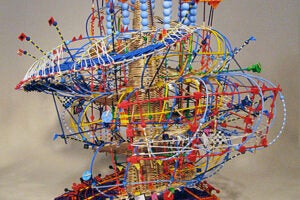
-
Nation & World
Teaching with élan
In a new master class series at HGSE, David Malan demonstrates why his course CS50, is wildly popular and what goes into creating memorable learning experiences for students.
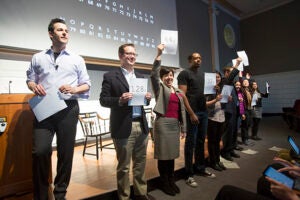
-
Nation & World
A successful community experiment
A Harvard program that welcomes high school interns to learn science in the lab often sets them on new academic and career paths.
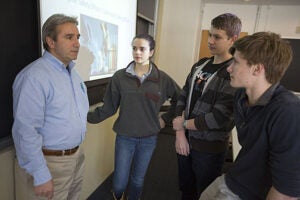
-
Nation & World
Heads for steel
In the Instructional Physics/SEAS Instrument Lab, a machine shop tucked in the basement of Lyman Laboratory, students learn to use a range of equipment — everything from lathes to laser cutters to 3-D printers.
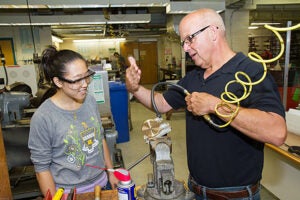
-
Nation & World
Robots to the rescue
Inspired by termites’ resilience and collective intelligence, a team of computer scientists and engineers at the Harvard School of Engineering and Applied Sciences and the Wyss Institute for Biologically Inspired Engineering at Harvard University has created an autonomous robotic construction crew. The system needs no supervisor, just simple robots that cooperate.
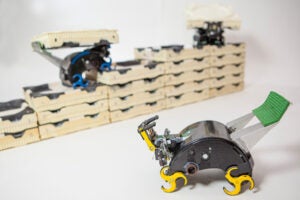
-
Nation & World
The promise of ‘big data’
Harvard symposium embraces the goals and challenges of collecting and processing massive amounts of information on key complex issues.
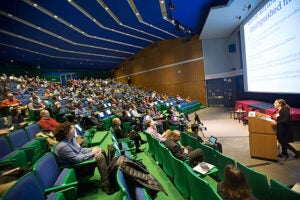
-
Nation & World
In search of nature’s camouflage
Cuttlefish, the “chameleon of the sea,” may offer researchers a model for bio-inspired human camouflage and color-changing products, some of which could be invaluable in wartime.
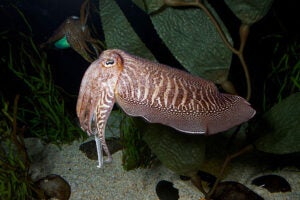
-
Nation & World
Warmth from the woods
At the 3,700-acre Harvard Forest, three wood-fired boilers are providing scientists with a new tool to expand their understanding of climate change, while generating sustainable energy as well.
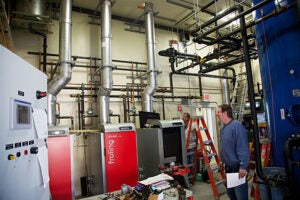
-
Nation & World
Battery offers renewable energy breakthrough
A team of Harvard scientists and engineers has demonstrated a new type of battery that could fundamentally transform the way electricity is stored on the grid, making power from renewable energy sources such as wind and sun far more economical and reliable.
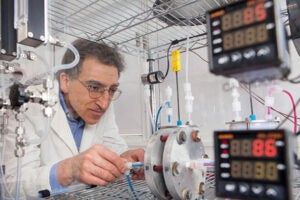
-
Nation & World
Science and delight, in the blink of an eye
The Harvard School of Engineering and Applied Sciences hosted an annual tradition, a holiday lecture for children on how science works.
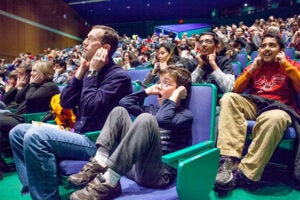
-
Nation & World
That thing attached to your hand? It might be doomed
With some predicting the demise of the smartphone, Professor Woodward Yang spoke to the Gazette about near and far prospects in personal tech.
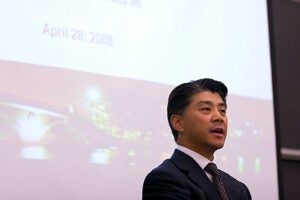
-
Nation & World
Airmail, to your door
Harvard engineering Professor Robert Wood lends his perspective to Amazon’s proposal to start a flying drone delivery service within a few years. His verdict is that FAA regulations and liability concerns will likely be bigger hurdles than the technology.
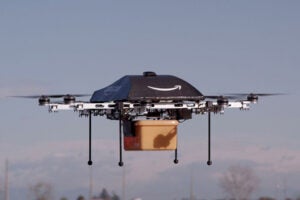
-
Nation & World
U.S. methane emissions exceed government estimates
Emissions of methane from fossil fuel extraction and refining activities in the United States are nearly five times higher than previous estimates, according to researchers at Harvard University and seven other institutions.
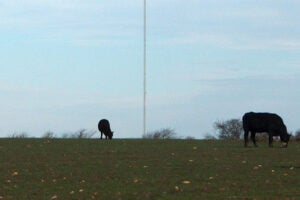
-
Nation & World
Genes without patents
The ACLU’s lead attorney and other participants in the Supreme Court case that overturned the common practice of patenting human genes discussed the ramifications in an event at the Science Center.
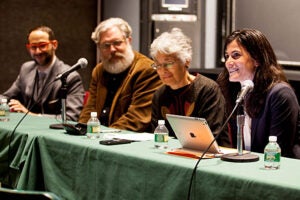
-
Nation & World
Flour power
Chef Joanne Chang ’91 returned to campus to delve into the basis of sweets as part of the “Science and Cooking” lecture series.
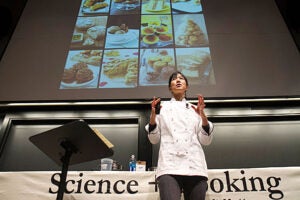
-
Nation & World
Engineering a better life
When Kathy Ku ’13 proposed to build a water-filter factory in Uganda for $15,000 last year, her contacts advised her to double her budget. If all goes to plan, by next August Ku and her classmates will have created a fully functional and self-sustaining water-filter factory, supplying clean water at half the cost of imported…
